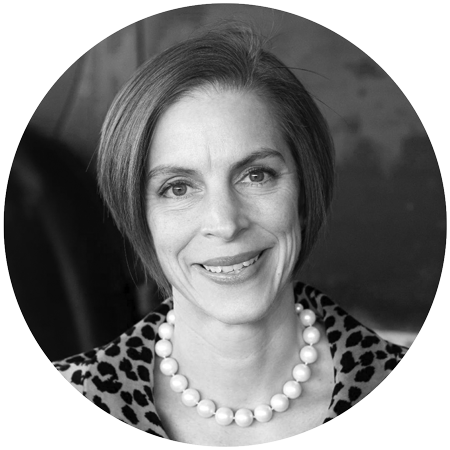major career change accompanied by a major move set in motion a domino effect from which I’m still grieving, learning and growing after realizing my career was my identity. I know I’m not alone; it’s common in our culture.
A frequent mantra we hear in business is that “what gets measured gets done.” We derive serious satisfaction when we deliver on the goals that we set for ourselves or that were established by our leaders. Likewise, we suffer when we fail to meet these goals. This affects our self-worth, our financial security, and our overall mental and physical well-being. We wear our work accomplishments as our identity.
Life perspective is gained only through the trials of time and experience. While my story isn’t unique, I tell it now with the hope that others can avoid the same mistake. My case of mistaken identity forced me to learn how to grieve, but it also gave me the tools to move forward.
Having determined at a young age to be financially secure, I entered college wary of the debt it required. I wondered if there really would be a return on my college investment. I worked a ton during my undergrad years trying to survive, be like other college kids and limit my debt load.
Graduation was a bittersweet accomplishment. I was the first college graduate in my family, but my debt was frightening. Where would I live? How would I eat? Would I, could I, achieve the American dream? It was up to me now. There was no one else to blame, no one else to help.

In hindsight, it’s clear that long before my professional career began, I was a workaholic valuing the financial security success could bring. This early habit followed me into my professional career.
I arrived in Juneau, Alaska, on January 1, 1996. My first job was as a legislative aide in the Alaska State Senate. From there I relocated to Ketchikan and worked in the forest products and health care industries. When the opportunity presented, I couldn’t resist returning to public service working for a governor. Ultimately, I served three governors in a wide variety of positions before landing a role as CEO for a struggling business association.
It was the perfect combination of challenge and public policy. I loved it. It was fun, and I was good at it. It was the first job I could envision being in for decades – or even the remainder of my career. During this time our family grew and soon I began struggling to be the CEO, mother and wife I wanted to be.
Despite having an amazingly supportive team in my husband, friends and mentors, my perfectionist tendencies did not mesh with my new reality. But I loved my job. There was no way I was leaving my dream job to stay at home and be a domestic engineer.
Had the reasons not grown, I would not have left the job I loved. I was finally financially secure and ready for a new adventure. Having moved to Alaska right out of undergrad, my youthful memories taunted me. “This will be fun, you moved to Alaska knowing no one, embrace it – you got this!”
Reality set in quick.
One day I was a successful CEO checking things off my list. The next day I was a full-time domestic engineer in a new town and new state, with zero connections, a list of unending unknowns and tasks, and very needy kids! There are so many amazing full-time parents that I hesitate even now to admit the truth, but here goes.
Being a domestic engineer is by far the toughest job I’ve ever had. This is something more parents understand with the stay-at-home orders were issued earlier this year. In this job, there’s no such thing as a break or downtime. You’re on the clock 24/7, 365 days of the year. Your “co-workers” are under 18, well below the age when the brain’s frontal cortex is developed; rational conversations are accidental and rare. You work harder than you’ve ever worked for no salary, no vacation and no recognition.
It’s hard to count the number of days I’ve longed to simply go back to an 8, 10, 12-hour day at the office. The hours, the pay, the demands and the stress of this line of work deserve to be revisited, accurately assessed and valued in our culture and workforce. But I digress.
There’s simply no way around the truth. My first year as a domestic engineer was beyond miserable. Not a day went by that I didn’t ask, What the hell is wrong with me? Why am I not a success anymore? How can I be such a complete and utter failure? Intellectually, I knew these thoughts were lies. My kids were loved, sheltered, fed, healthy – completely normal. But I was used to being measured and rewarded when I achieved objective goals, and this role provided none of that. Thus, this mental trauma tortured me and my family for at least a year before I realized the truth.
Without my career, and the measurements that went along with it, I had no identity, no worth. These thoughts persistently tormented me.
The first step in healing is realizing you’re sick. At least that’s the way it played out for me. It took an enormous amount of intellectual capacity for me to finally admit my self-worth was completely attached to my career. And more time to acknowledge my worth independent of a career, or at least the career I’d known.
It’s been a gradual process, but now I understand the importance of grieving. I needed to grieve for my old job, my accomplishments, my reputation, my way of life. Grief allows you to process pain so you can move forward; it also allows you to celebrate the successes and remember the failures you experienced along the way.
I’m still learning to accept myself for who I am untethered to the career I knew, loved and blindly served. I’m learning to adapt. Part of my process has been establishing my own consulting business, leveraging my old career skills and exploring new opportunities on my own terms.
Grieving has allowed me to grow and challenge myself in new and different ways. And since we know that what gets measured gets done, my process now includes long-term, annual, quarterly and monthly goals. These are now the goals that define what success looks like for me. These goals are managed according to my terms with the necessary flexibility and adaptability all successful businesses require. This includes having to grieve, scrap and rethink my Q2 goals due to the COVID-19 pandemic.
Despite moving into a completely new field, I should have trusted myself and worked from my strengths. Instead, I focused on trying to fix my weaknesses and found myself in a downward vortex.
If you’re considering jumping into a new adventure, I recommend slowing down long enough to truly prepare. Risks worth taking always have road bumps. Prepare yourself to grieve what you’re leaving behind so you can embrace new opportunities and grow. This means giving yourself permission to be honest and acknowledging your feelings are valid. Identify your strengths and weaknesses and commit to using your strengths to help you through your grief and into growth.
Even if you don’t feel you’ve lost much, grieving allows you to recognize the good, the bad and the ugly of your past and re-focus on the future. If you have much to grieve, it is even more important to do so, as it will allow you to learn from your past and move forward.
A great way to start is to remember all the things you have missed while sequestered in your home due to the pandemic – that’s the beginning of the grief process. Many of us grieved lost jobs, sports seasons, graduations, economic growth, births, deaths, security, routines and freedoms. As the weeks wore on, many of us began to see new value and opportunities from being stuck at home: more family time, perspective, health, meals around the table, and connecting with long-lost or missed friends via technology.
As the full force of COVID-19 swept across our town, I found myself grateful for the painful experience of my mistaken identity. I knew I needed to grieve, and I didn’t hesitate. We weathered the storm in relative peace. Remember the key to weathering a storm may simply begin by embracing your loss.

Petro’s passion is connecting people and businesses to solutions. She holds a Bachelor of Arts degree in History and Political Economics with an emphasis in Journalism from Hillsdale College, and a Master of Business Administration degree from Alaska Pacific University. Petro resides in Wenatchee, Washington, with her husband, Andy, and daughters, Lucy Mae and Tabitha Ann.
Petro’s passion is connecting people and businesses to solutions. She holds a Bachelor of Arts degree in History and Political Economics with an emphasis in Journalism from Hillsdale College, and a Master of Business Administration degree from Alaska Pacific University. Petro resides in Wenatchee, Washington, with her husband, Andy, and daughters, Lucy Mae and Tabitha Ann.